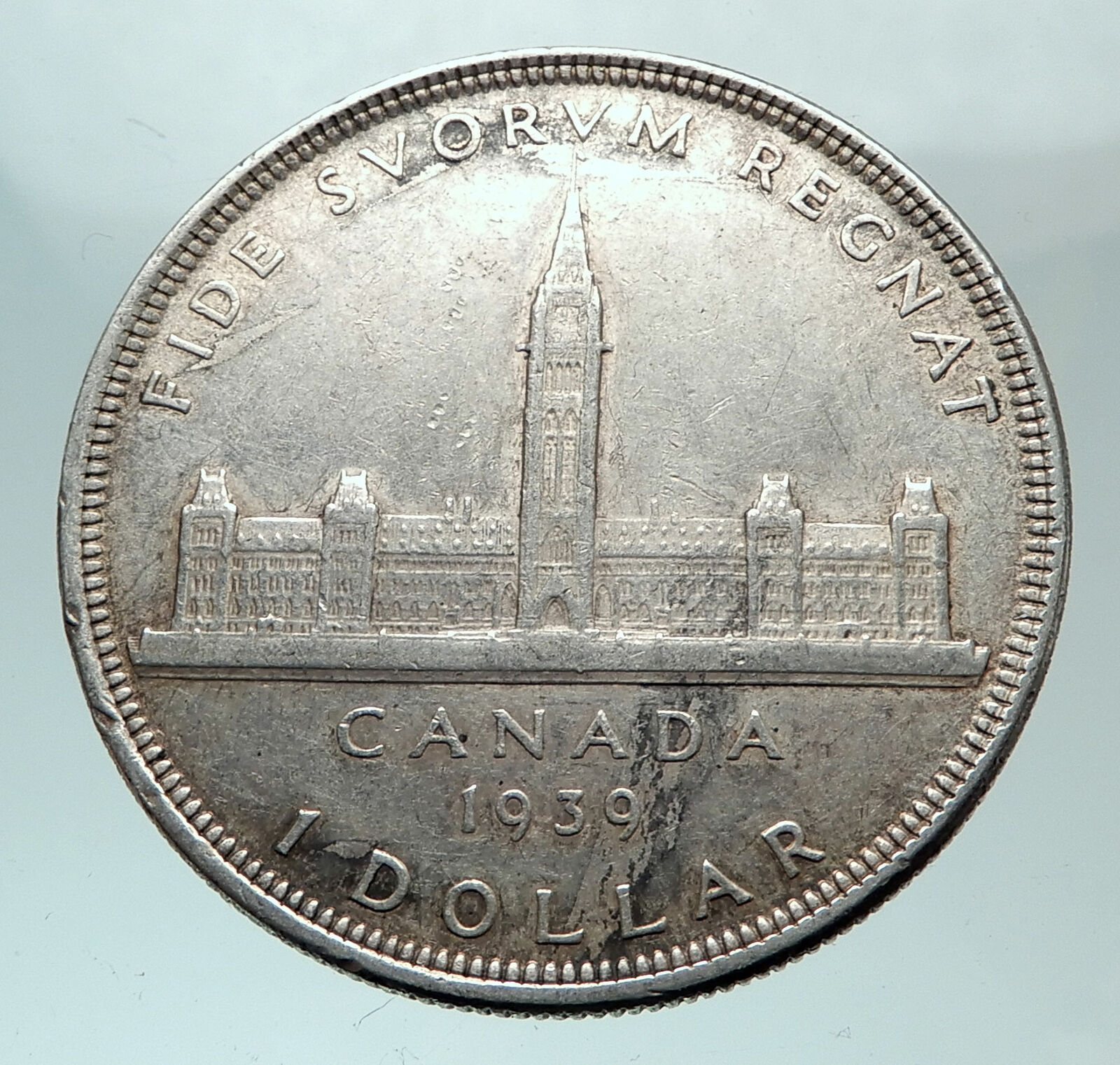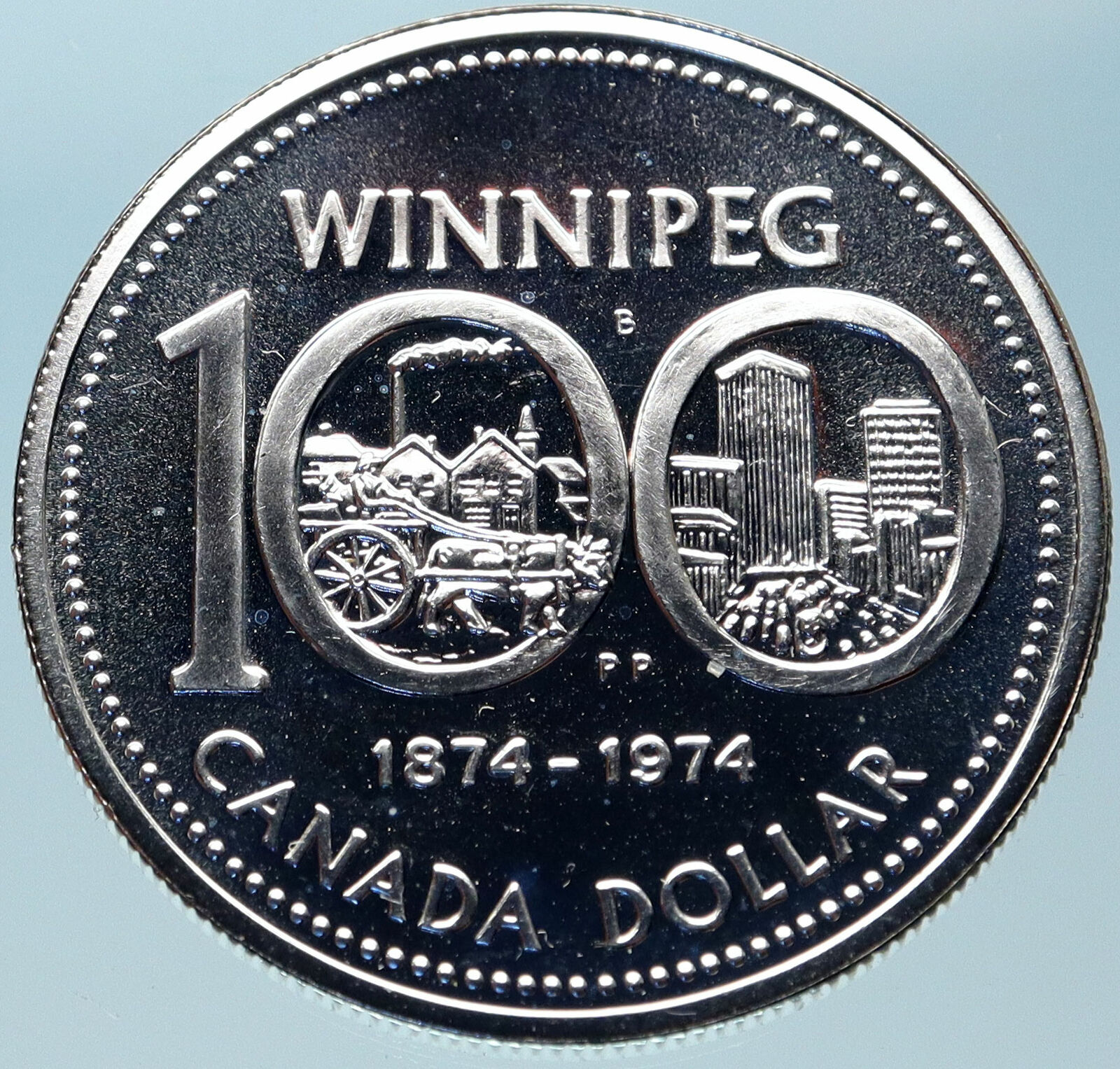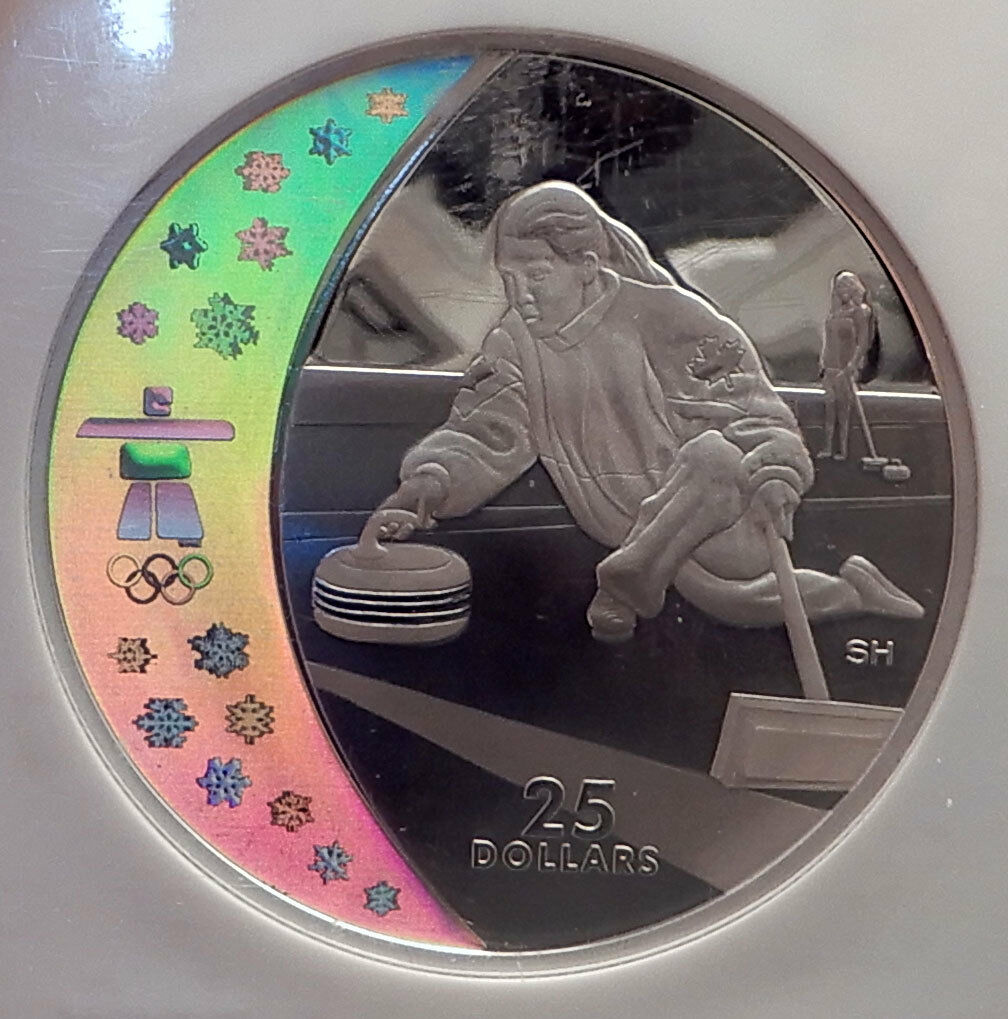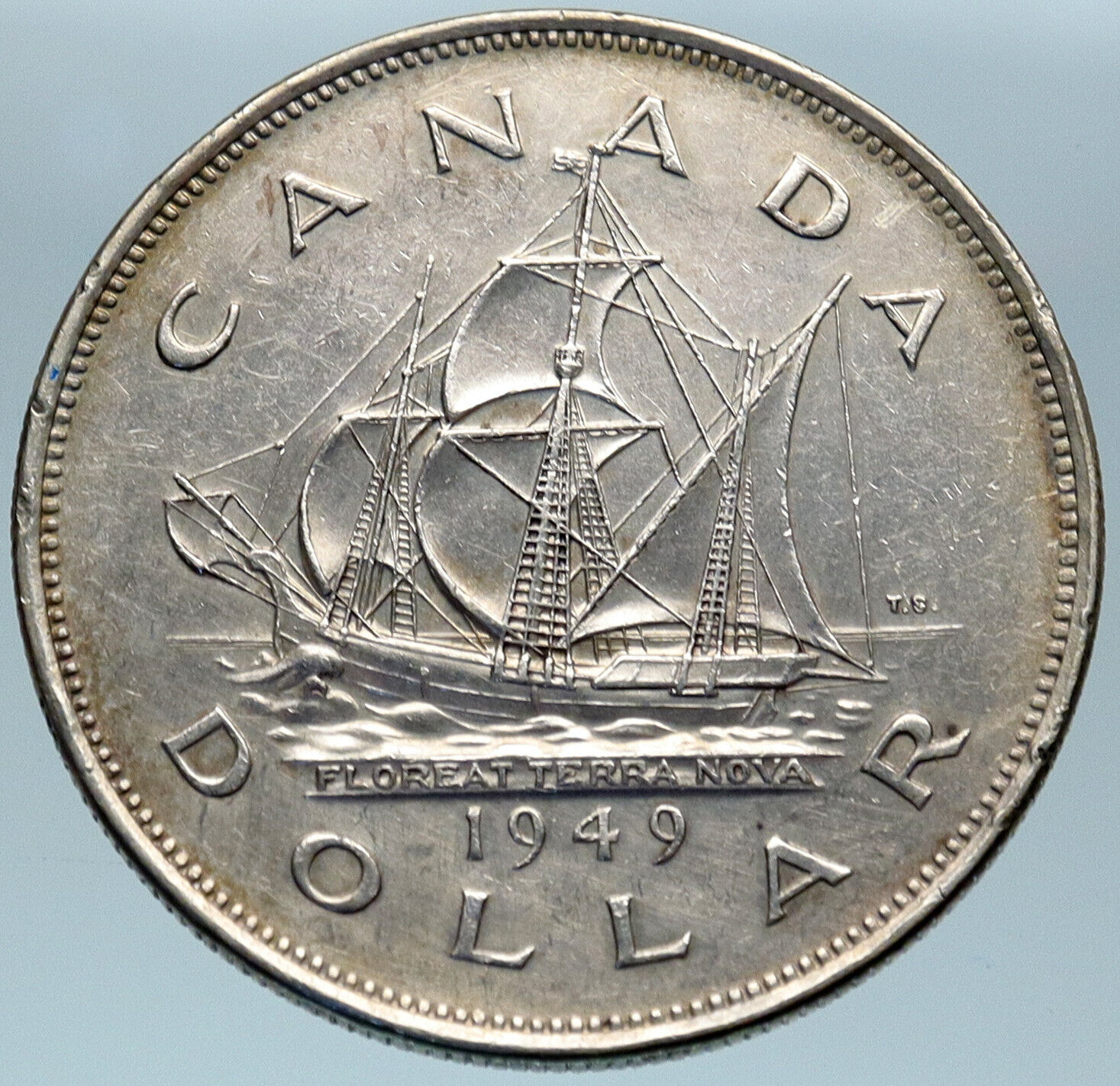|
Canada under Elizabeth II – Queen: 6 February 1952–present
Proof Set of Eight Coins
125th Anniversary of the Royal Canadian Mounted Police (RCMP)
This set includes a Commemorative Dollar, 2 Dollars, 1 Dollar, 50 Cents, 25 Cents, 10 Cents, 5 Cents and 1 Cent coins
The Dollar is:
125th Anniversary of the Royal Canadian Mounted Police
1998 Silver Dollar 36.07mm (25.175 grams) 0.925 Silver (0.7487 oz. ASW)
Reference: KM# 306
ELIZABETH II D·G·REGINA, Bust of Queen Elizabeth II facing right.
C A N A D A D O L L A R 1873 – 1998 RCMP GRC, RCMP officer mounted on a horse.
You are bidding on the exact item pictured, provided with a Certificate of Authenticity and Lifetime Guarantee of Authenticity.
The Royal Canadian Mounted Police (RCMP; French: Gendarmerie royale du Canada (GRC), lit. ‘Royal Gendarmerie of Canada’; colloquially known as the “Mounties”) are the federal and national police service of Canada, providing law enforcement at the federal level. The RCMP also provide provincial policing in eight of Canada’s provinces (all except Ontario and Quebec) and local policing on a contract basis in the three territories (Northwest Territories, Nunavut, and Yukon) and more than 150 municipalities, 600 Indigenous communities, and three international airports. The RCMP do not provide active provincial or municipal policing in Ontario or Quebec. However, all members of the RCMP have jurisdiction as a peace officer in all parts of Canada, not including Ontario and Quebec except for federal laws. Despite the name, the Royal Canadian Mounted Police are no longer an actual mounted police service, with horses only being used at ceremonial events.
As Canada’s national police service, the RCMP are primarily responsible for enforcing federal laws throughout Canada, whereas general law and order including the enforcement of the Criminal Code and applicable provincial legislation is constitutionally the responsibility of the provinces and territories. Larger cities may form their own municipal police departments.
The two most populous provinces, Ontario and Quebec, maintain provincial forces: the Ontario Provincial Police and the Sûreté du Québec. The other eight provinces contract policing responsibilities to the RCMP, which provides front-line policing in those provinces under the direction of the provincial governments. When Newfoundland joined the confederation in 1949, the RCMP entered the province and absorbed the then-Newfoundland Ranger Force, which patrolled most of Newfoundland’s rural areas. The Royal Newfoundland Constabulary patrols urban areas of the province. In the territories, the RCMP is the sole territorial police force. Many municipalities throughout Canada contract to the RCMP. Thus, the RCMP polices at the federal, provincial, and municipal level. In some areas of Canada, it is the only police force.
The RCMP is responsible for an unusually large breadth of duties. Under their federal mandate, the RCMP police throughout Canada, including Ontario and Quebec (albeit on smaller scales there). Federal operations include: enforcing federal laws including commercial crime, counterfeiting, drug trafficking, border integrity (excluding border control responsibilities exercised by the Canada Border Services Agency), organized crime, and other related matters; providing counter-terrorism and domestic security; providing protection services for the Canadian monarch, governor general, prime minister, their families and residences, and other ministers of the Crown, visiting dignitaries, and diplomatic missions; and participating in various international policing efforts.
Under provincial and municipal contracts the RCMP provides front-line policing in all areas outside of Ontario and Quebec that do not have an established local police force. There are detachments located in small villages in the far north, remote First Nations reserves, and rural towns, but also larger cities such as Surrey, British Columbia (population 468,251). There, support units investigate for their own detachments, and smaller municipal police forces. Investigations include major crimes, homicides, forensic identification, collision forensics, police dogs, emergency response teams, explosives disposal, and undercover operations. Under its National Police Services branch the RCMP supports all police forces in Canada via the Canadian Police Information Centre, Criminal Intelligence Service Canada, Forensic Science and Identification Services, Canadian Firearms Program, and the Canadian Police College.
.svg/220px-Canada_(orthographic_projection).svg.png)  Canada is a country, consisting of ten provinces and three territories, in the northern part of the continent of North America. It extends from the Atlantic to the Pacific and northward into the Arctic Ocean, covering 9.98 million square kilometres (3.85 million square miles) in total, making it the world’s second-largest country by total area and the fourth-largest country by land area. Canada’s common border with the United States forms the world’s longest land border. Canada is sparsely populated overall, the majority of its land territory being dominated by forest and tundra as well as the mountain range of the Rocky Mountains; about four-fifths of the population live near to the southern border. The majority of Canada has a cold or severely cold winter climate, but southerly areas are warm in summer. Canada is a country, consisting of ten provinces and three territories, in the northern part of the continent of North America. It extends from the Atlantic to the Pacific and northward into the Arctic Ocean, covering 9.98 million square kilometres (3.85 million square miles) in total, making it the world’s second-largest country by total area and the fourth-largest country by land area. Canada’s common border with the United States forms the world’s longest land border. Canada is sparsely populated overall, the majority of its land territory being dominated by forest and tundra as well as the mountain range of the Rocky Mountains; about four-fifths of the population live near to the southern border. The majority of Canada has a cold or severely cold winter climate, but southerly areas are warm in summer.
The land now called Canada has been inhabited for millennia by various Aboriginal peoples. Beginning in the late 15th century, British and French colonies were established on the region’s Atlantic coast. As a consequence of various conflicts, the United Kingdom gained and lost North American territories until left, in the late 18th century, with what mostly comprises Canada today. Pursuant to the British North America Act, on July 1, 1867, three colonies joined to form the autonomous federal Dominion of Canada. This began an accretion of provinces and territories to the new self-governing Dominion. In 1931, Britain granted Canada near total independence with the Statute of Westminster 1931 and full sovereignty was attained when the Canada Act 1982 severed the vestiges of legal dependence on the British parliament.
Canada is a federal parliamentary democracy and a constitutional monarchy, Queen Elizabeth II being the current head of state. The country is officially bilingual at the federal level. It is one of the world’s most ethnically diverse and multicultural nations, the product of large-scale immigration from many countries, with a population of approximately 35 million as of 2015. Its advanced economy is the eleventh largest in the world, relying chiefly upon its abundant natural resources and well-developed international trade networks. Canada’s long and complex relationship with the United States has had a significant impact on its economy and culture.
Canada is a developed country and one of the wealthiest in the world, with the tenth highest nominal per capita income globally, and the eighth highest ranking in the Human Development Index. It ranks among the highest in international measurements of government transparency, civil liberties, quality of life, economic freedom, and education. Canada is a Commonwealth Realm member of the Commonwealth of Nations, a member of the Francophonie, and part of several major international and intergovernmental institutions or groupings including the North Atlantic Treaty Organization, the G8, the Group of Ten, the G20, the North American Free Trade Agreement and the Asia-Pacific Economic Cooperation forum.
|







.svg/220px-Canada_(orthographic_projection).svg.png)
 Canada is a country, consisting of ten provinces and three territories, in the northern part of the continent of North America. It extends from the Atlantic to the Pacific and northward into the Arctic Ocean, covering 9.98 million square kilometres (3.85 million square miles) in total, making it the world’s second-largest country by total area and the fourth-largest country by land area. Canada’s common border with the United States forms the world’s longest land border. Canada is sparsely populated overall, the majority of its land territory being dominated by forest and tundra as well as the mountain range of the Rocky Mountains; about four-fifths of the population live near to the southern border. The majority of Canada has a cold or severely cold winter climate, but southerly areas are warm in summer.
Canada is a country, consisting of ten provinces and three territories, in the northern part of the continent of North America. It extends from the Atlantic to the Pacific and northward into the Arctic Ocean, covering 9.98 million square kilometres (3.85 million square miles) in total, making it the world’s second-largest country by total area and the fourth-largest country by land area. Canada’s common border with the United States forms the world’s longest land border. Canada is sparsely populated overall, the majority of its land territory being dominated by forest and tundra as well as the mountain range of the Rocky Mountains; about four-fifths of the population live near to the southern border. The majority of Canada has a cold or severely cold winter climate, but southerly areas are warm in summer.




